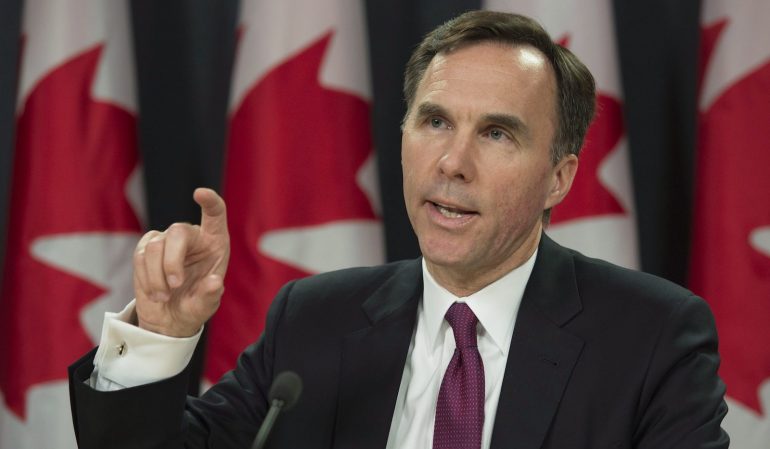At Communitech in Waterloo, Finance Minister Bill Morneau doubled down on his commitment that the government’s proposed tax changes would not adversely affect small business owners and the investing community.
Today’s appearance selling the government’s Tax Fairness Plan is one of several this week addressing criticism of the government’s proposed tax changes. The government said it wants to ensure that Canadian-controlled private corporation (CCPC) status is not used to reduce personal income tax obligations for high-income earners, rather than supporting small businesses.
This week, The Minister announced a $50,000 a year threshold for taxing passive investments , and that it would not target capital gains.
The government has said that its taxing of passive investments will be targeted, and will ensure incentives are maintained so venture capital and angel investors can continue their work. It will work with the venture capital and angel investment sectors to identify how this can be best achieved.
The government still plans to restrict income sprinkling — which allows business owners to transfer income to a child or spouse who would be taxed at a lower rate — by January 1.
Before these announcements, entrepreneurs across the country have been vocal in their opposition to the proposals, which they say would stifle further investment in the entrepreneurship community and inhibit their ability to prepare for downturns in the business.
“What we’re talking about in this room is the critical importance of maintaining the ability to access capital from angel investors. We want to make sure there’s capital available so businesses can grow…that point was important to us. We heard we needed to get that right,” Morneau said.
As the government’s public consultations came to a close, organizations like NACO, CVCA, and the Council of Canadian Innovators released open letters on behalf of their members cautioning the government about the changes. CCI members — which include industry leaders like OMERS CEO John Ruffolo and eSentire CTO Mark McArdle — pointed out that changes to how passive income is treated under Canada’s tax system could reduce the availability of risk capital in Canada that is relied upon for business investment.
In a statement, CCI indicated that they are open to continuing discussions with the government as it builds its Tax Fairness plan. “Access to capital is a critical part of growing a tech firm, and Canada’s high-growth CEOs need a competitive tax environment and an ecosystem that encourages entrepreneurship and scaling up globally. We are pleased the government is willing to engage Canadian innovators and understand their important contribution to our economy,” said Benjamin Bergen, executive director of CCI.


